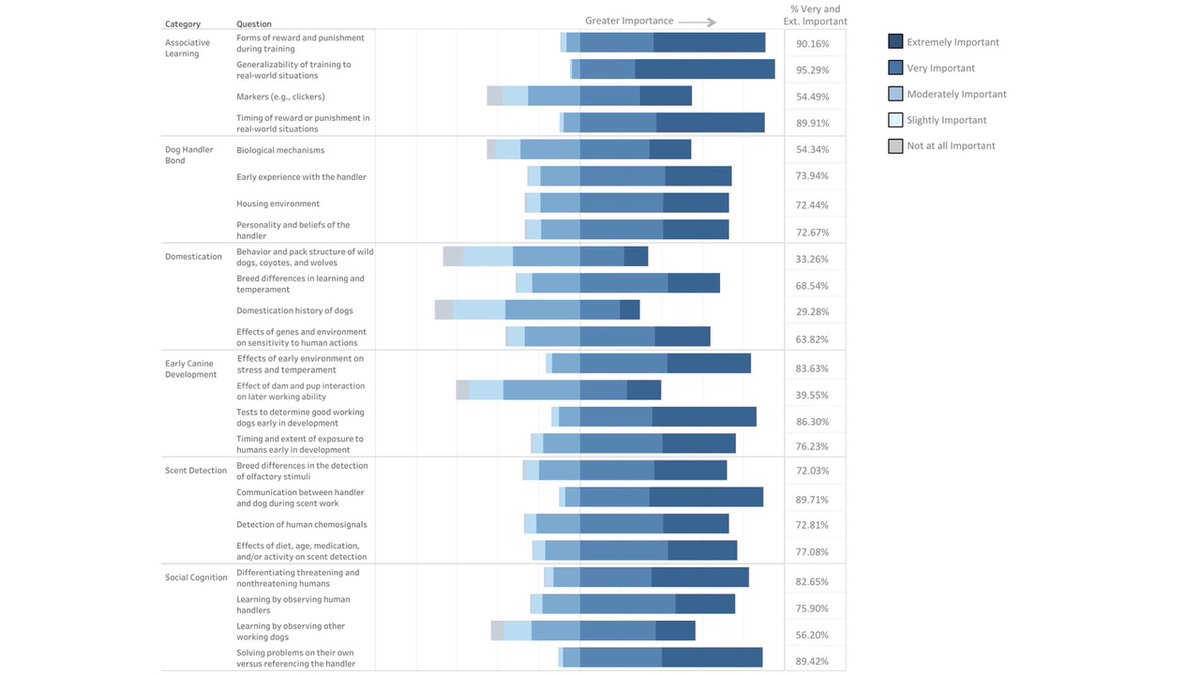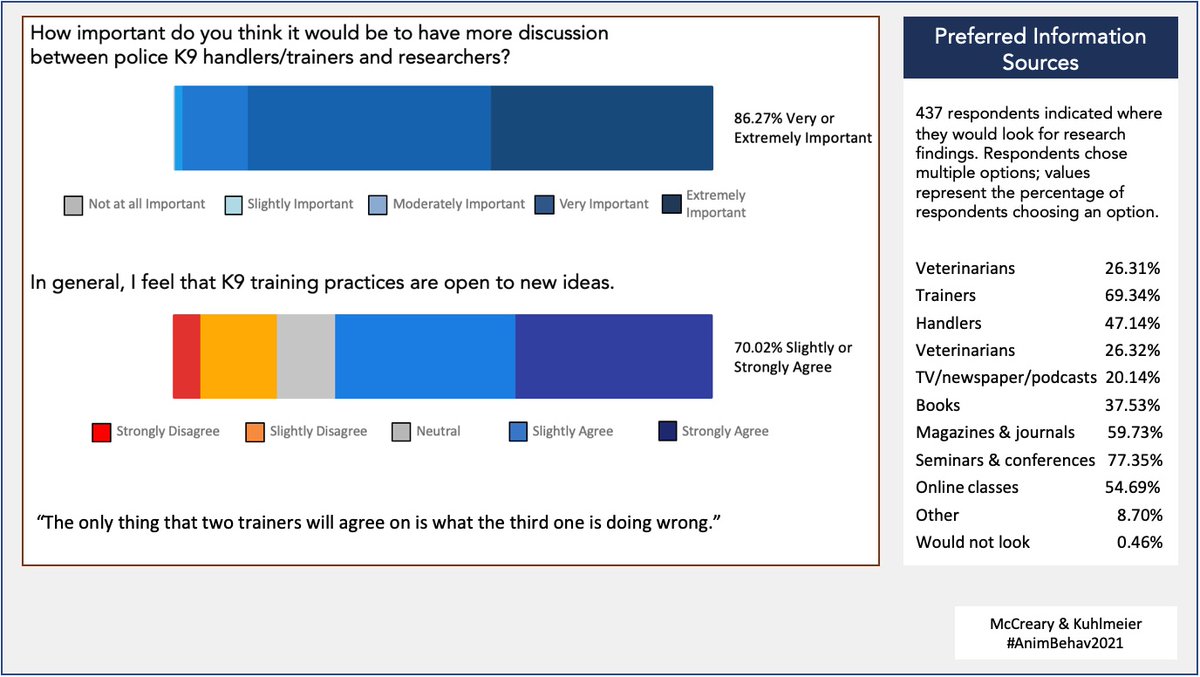(1/5) #AnimBehav2021 @Comp_Cog Research on canine cognition is growing at a seemingly exponential rate, with most papers appearing post-2000. With notable exceptions (e.g. using cognition tasks to determine good working dogs), there is a disconnect between research and practice.
(2/5) #AnimBehav2021 @Comp_Cog In a 32-item survey, 443 professional dog handlers/trainers indicated which research topics in canine behaviour/cognition would be relevant to their work, how open their field is to scientific findings, and where they are likely to look for findings.
(3/5) #AnimBehav2021 @Comp_Cog Among topics labelled “important” by respondents, topics related to scent detection, associative learning, and attention to human behavioral cues received high ratings. Topics related to early development, though not maternal care, also scored high.
(4/5) #AnimBehav2021 @Comp_Cog 86% said it would be very or extremely important to have discussion between trainers and researchers. 70% agreed that training is open to new ideas. Respondents noted limited access to research, though indicated effective venues for communication.
(5/5) #AnimBehav2021 @Comp_Cog Dogs’ place in human society provides opportunities for direct research applications. We note the challenge of such work, as groups must find common ground, but also the potential advancement of science via collaboration with K9 professionals.

 Read on Twitter
Read on Twitter






